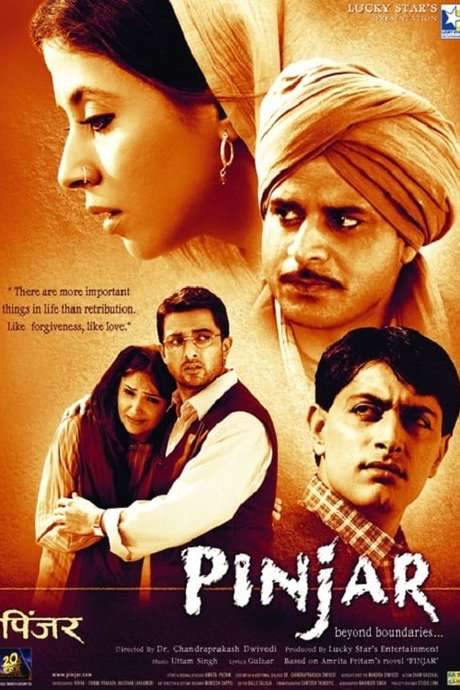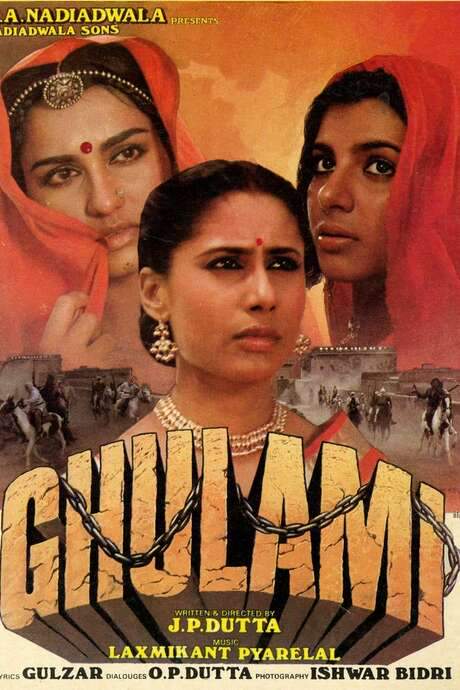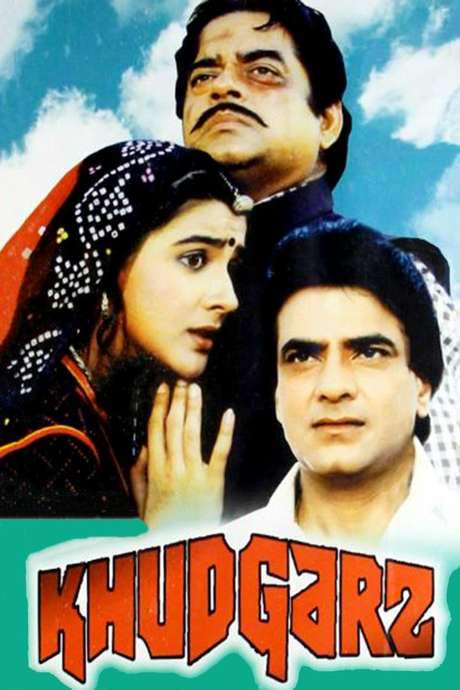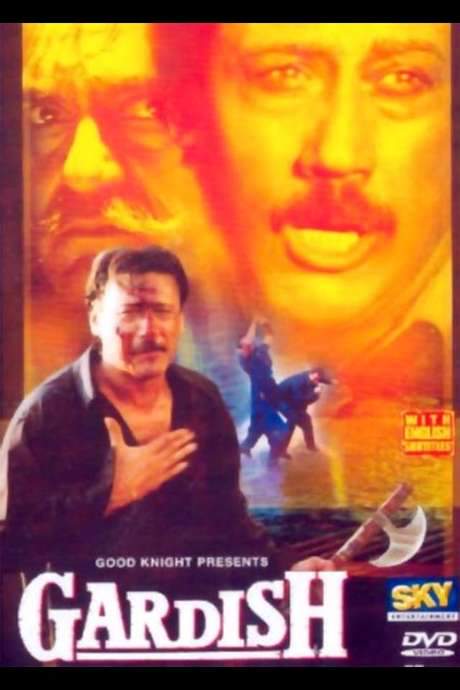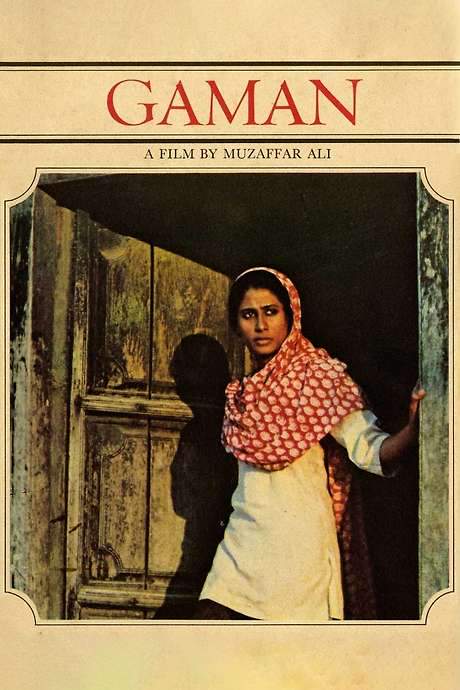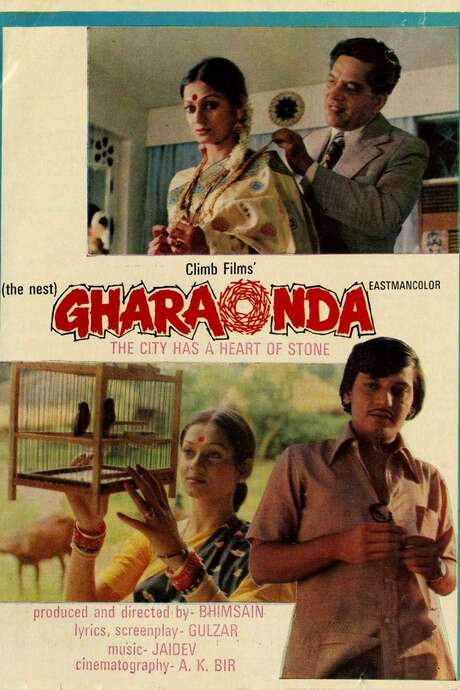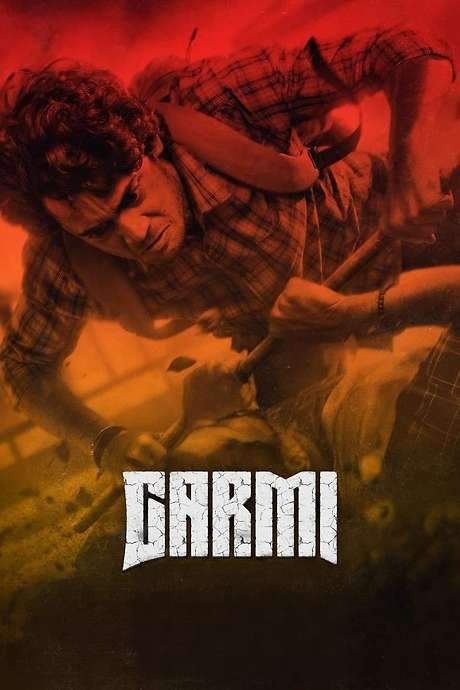
Garm Hava
Year: 1973
Runtime: 146 mins
Language: Urdu
Director: M.S. Sathyu
In the aftermath of Partition, the turbulence of a divided nation mirrors the inner turmoil of a Muslim businessman and his family. As they navigate a new India that was once theirs, they fight to reclaim their rights and a sense of belonging amid lingering resentment and uncertainty.
Warning: spoilers below!
Haven’t seen Garm Hava yet? This summary contains major spoilers. Bookmark the page, watch the movie, and come back for the full breakdown. If you're ready, scroll on and relive the story!
Garm Hava (1973) – Full Plot Summary & Ending Explained
Read the complete plot breakdown of Garm Hava (1973), including all key story events, major twists, and the ending explained in detail. Discover what really happened—and what it all means.
In the years just after India’s independence and the partition of 1947, the Mirza family lives in a grand ancestral house in Agra, where they run a traditional shoe-making business. At the center of the clan is Salim Mirza, the steady hand who heads the family enterprise, and his elder brother, a political figure deeply tied to the All India Muslim League. The household is also home to Salim’s wife, their aging mother, and two sons: Baqar, who works alongside his father, and Sikander, a young student trying to find his own path in a country reborn from turmoil. The family’s world is tightly knit around shared history, loyalty, and the unspoken hope that life will return to some semblance of normality despite the tectonics of a newly carved nation.
The political divide soon presses home on everyday life. Halim’s departure from India, quietly moving to Pakistan with his wife and son under the conviction that Muslims have to seek a future beyond the subcontinent, sends shockwaves through the Mirza household. Salim resists the idea of leaving, clinging to the belief that peace and harmony can still be rebuilt in India, even as his responsibilities toward their aging mother pull him to stay. The promise of unity frays as Kazim, Salim’s nephew and Amina’s fiancé, waits in the wings, and the plans for a marriage between Kazim and Salim’s daughter Amina are unsettled by this political rupture. The departure of Halim alters the social ecosystem of Agra, where Halim once stood as a pillar of the Muslim community; his choice unsettles the trust of neighbors and lenders alike.
As the boundaries around belonging tighten, the Mirza family finds itself squeezed financially. Banks and lenders, wary of Muslims who might depart for Pakistan, hesitate to extend credit for production. Salim’s business stagnates, and the family’s standing in the community begins to waver. The brother-in-law, who once supported Halim’s League affiliations, now aligns with the Congress as a bid to secure his own position in independent India, while his son Shamshad courts Amina but finds more in the way of drift and disappointment than a secure future. The household’s stability deteriorates even further when Halim’s migration leaves the family home in an evacuee status—no longer under their name, and thus subject to government measures that threaten to strip them of the only place they have known as home.
A quiet figure named Ajmani enters the scene as a friend and business associate who respects Salim and steps in to help. The house is bought from under the Mirza family by this associate, a turn that stings Salim and underscores the volatile climate of a country redefining itself. Yet even in the face of such upheaval, there are small victories: Sikander graduates from college, a moment of pride in a sea of hardship that briefly lifts the family’s spirits. The question of love and loyalty remains central, as Kazim, who had planned to marry Amina before heading to Canada on a government scholarship, reappears with painful news—he has been arrested for traveling without a passport and for not registering at the station, and is repatriated to Pakistan. Amina’s heart tilts away from Kazim’s return, and she turns toward Shamshad, though the possibility of a joyous union is overshadowed by betrayal and the murky politics of cross-border life.
Meanwhile, Sikander faces the unforgiving reality of unemployment in a country that is grappling with its own identity. He and his friends become restless, voicing frustrations through protests about joblessness and discrimination. Salim imposes limits on his son’s activism, fearing further trouble and the risk of destabilizing what remains of their family fortune. The family’s troubles become more visible when Salim’s brother-in-law loses his wealth through questionable deals and chooses to flee to Pakistan, dragging the family’s reputation deeper into fragility. Amina’s romance shifts again as Shamshad’s own life moves forward, leaving her to confront a future that looks increasingly isolated from the promises she once believed.
Economic stress continues to erode the Mirza household. Salim’s reluctance to modernize and to build ties with the newly forming shoemakers’ union results in a lack of patronage for the business, and the shop’s lights begin to dim. Baqar, discouraged by the lack of a sustainable path at home, decides to migrate to Pakistan with his own family, hoping for a fresh start beyond the borders that now seem to close in on the Mirzas. The family’s beloved home becomes a place of memory and sorrow when Salim’s aging mother suffers a stroke, and Salim arranges one final, bittersweet visit to the house she has called home for generations—an attempt to preserve a link to the past as the present slips away.
A fateful accident on a horse-drawn carriage and the ensuing riot bring the community’s tensions into sharper relief. Salim is injured in the melee, the kind of incident that crystallizes how precarious life has become for a family whose fortunes have always leaned on respect and stability. With the house no longer under their protection and the business failing to recover, Salim finds himself reduced to a craftsman’s life, working as a humble shoemaker to support his family. The arc of the Mirza household’s resilience is tested further when Shamshad’s mother returns from Pakistan, only to reveal that Shamshad’s own future has already been arranged with another family’s daughter—a revelation that deepens Amina’s sense of betrayal and drives her toward an irreversible choice.
Tragedy intensifies as Amina’s unyielding disappointment culminates in suicide, a moment that devastates the entire family and underscores the emotional costs of loyalties broken by the new political reality. The pain of suspicion surfaces when Salim is accused of espionage for sending plans of their property to his brother in Karachi, Pakistan. He is ultimately acquitted, yet the stigma lingers, and public whispers strip him of dignity. The final turning point comes when Salim, having endured so much, decides to leave India for Pakistan. Sikander argues for staying and fighting for a shared future, but Salim’s resolve hardens as he joins the crowd of protesters and urges the driver to return his wife to the house. The film closes with Salim stepping into the march, the once-sturdy pillar now stepping into a moving sea of collective action, signaling an end to his isolation and a cautious acceptance that the nation’s future must be faced together, even if it means leaving behind the home and the life that once defined him.
Last Updated: October 09, 2025 at 10:48
Explore Movie Threads
Discover curated groups of movies connected by mood, themes, and story style. Browse collections built around emotion, atmosphere, and narrative focus to easily find films that match what you feel like watching right now.
Movies about displacement and belonging like Garm Hava
Epic family stories where political turmoil fractures identity and home.If you were moved by the poignant portrayal of a family's struggle in Garm Hava, explore these other movies about displacement and belonging. This list features similar family sagas and dramas where political conflict shatters lives, forcing characters to grapple with identity and the meaning of home amid historical turmoil.
Narrative Summary
Stories in this thread typically follow a linear family saga over an extended period, charting a decline from stability to loss. The central conflict is external political forces disrupting personal lives, leading to economic hardship, forced migration, and an internal crisis of identity. The narrative builds methodically, emphasizing the cumulative weight of small defeats and the erosion of dignity.
Why These Movies?
These films are grouped together because they share a melancholic tone, slow pacing, and heavy emotional weight centered on themes of belonging and generational loss. They all depict the human cost of large-scale political events through intimate family portraits, creating a powerful and reflective viewing experience.
Movies with bittersweet resilience like Garm Hava
Stories where a glimmer of hope emerges from the ashes of despair.For viewers who appreciated the complex ending of Garm Hava, this list highlights films with bittersweet resilience. Discover similar movies where characters endure immense personal tragedy and loss, yet find a measure of defiant hope or collective strength, creating an emotionally heavy but ultimately poignant experience.
Narrative Summary
The narrative pattern involves a protagonist suffering a series of devastating losses that strip them of everything—family, home, status. The story builds to a point of near-total defeat, but instead of ending in pure despair, the character makes a final, often quiet, choice to connect with others or take a stand. This act doesn't reverse the tragedy but offers a meaningful, forward-looking gesture.
Why These Movies?
These films are united by their bittersweet ending feel, which follows an intensely sad and heavy narrative. They balance overwhelming emotional devastation with a final, resonant note of human resilience, creating a specific and powerful emotional arc that is cathartic rather than purely depressing.
Unlock the Full Story of Garm Hava
Don't stop at just watching — explore Garm Hava in full detail. From the complete plot summary and scene-by-scene timeline to character breakdowns, thematic analysis, and a deep dive into the ending — every page helps you truly understand what Garm Hava is all about. Plus, discover what's next after the movie.
Garm Hava Timeline
Track the full timeline of Garm Hava with every major event arranged chronologically. Perfect for decoding non-linear storytelling, flashbacks, or parallel narratives with a clear scene-by-scene breakdown.

Characters, Settings & Themes in Garm Hava
Discover the characters, locations, and core themes that shape Garm Hava. Get insights into symbolic elements, setting significance, and deeper narrative meaning — ideal for thematic analysis and movie breakdowns.

Garm Hava Spoiler-Free Summary
Get a quick, spoiler-free overview of Garm Hava that covers the main plot points and key details without revealing any major twists or spoilers. Perfect for those who want to know what to expect before diving in.

More About Garm Hava
Visit What's After the Movie to explore more about Garm Hava: box office results, cast and crew info, production details, post-credit scenes, and external links — all in one place for movie fans and researchers.

Similar Movies to Garm Hava
Discover movies like Garm Hava that share similar genres, themes, and storytelling elements. Whether you’re drawn to the atmosphere, character arcs, or plot structure, these curated recommendations will help you explore more films you’ll love.
Explore More About Movie Garm Hava
Garm Hava (1973) Scene-by-Scene Movie Timeline
Garm Hava (1973) Movie Characters, Themes & Settings
Garm Hava (1973) Spoiler-Free Summary & Key Flow
Movies Like Garm Hava – Similar Titles You’ll Enjoy
Gamak Ghar (2019) Spoiler-Packed Plot Recap
Gadar: Ek Prem Katha (2001) Full Movie Breakdown
Pinjar (2003) Spoiler-Packed Plot Recap
Ghulami (1985) Detailed Story Recap
Ghar Sansar (1986) Full Summary & Key Details
Khudgarz (1987) Complete Plot Breakdown
Ghar Banduk Biryani (2023) Film Overview & Timeline
Gardish (1993) Complete Plot Breakdown
Gaman (1978) Complete Plot Breakdown
Pardes (1997) Plot Summary & Ending Explained
Gharaonda (1977) Film Overview & Timeline
Ghar (1978) Detailed Story Recap
Gharat Ganpati (2024) Full Summary & Key Details
Gadar 2 (2023) Story Summary & Characters
Garmi (1000) Ending Explained & Film Insights
































